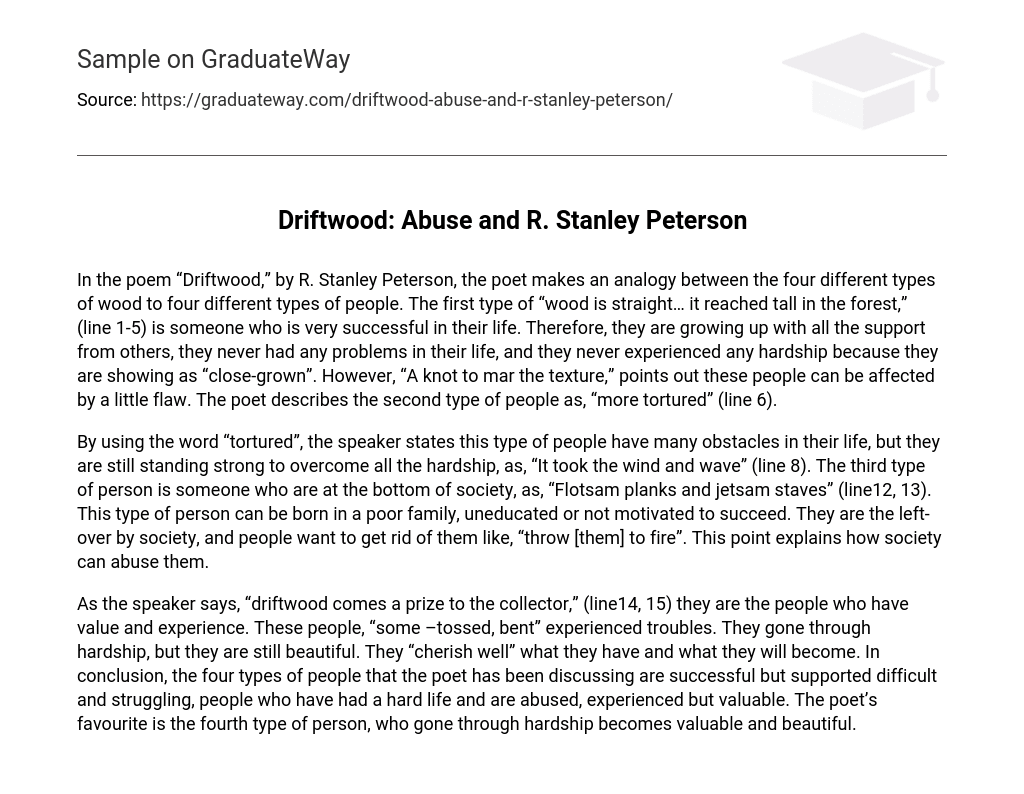In the poem “Driftwood,” written by R. Stanley Peterson, an analogy is made between four types of wood and four types of people. The first type of wood is compared to individuals who are successful in life, standing tall in the forest. These individuals have had the support of others, faced no difficulties, and showcased themselves as flawless. However, even they can be marred by a small flaw, represented by a knot in the wood’s texture. The poet characterizes the second type of people as more tormented.
The speaker labels individuals who face numerous challenges in their lives yet remain resilient as “tortured” (line 8), which is depicted through the phrase “It took the wind and wave”. Another category of people described are those positioned at the lower stratum of society, as indicated by the expression “Flotsam planks and jetsam staves” (line 12, 13). These individuals may arise from impoverished backgrounds, lack education, or lack motivation to succeed. They are essentially disregarded by society and treated as disposable – showcased by the notion of “throw[ing] [them] to fire”. This underscores how society mistreats them.
According to the speaker, driftwood carries a special significance to collectors (line 14, 15). These individuals are those who possess value and experience. These people, described as “some –tossed, bent,” have experienced hardships. Despite their difficulties, they have retained their beauty. They appreciate and cherish what they possess and what they will become. In conclusion, the poet discusses four types of people who are successful but have faced challenges and struggles, as well as those who have endured a difficult life and have been mistreated. The poet’s favorite type of person is the fourth category, as they have overcome hardship and have become valuable and beautiful.





